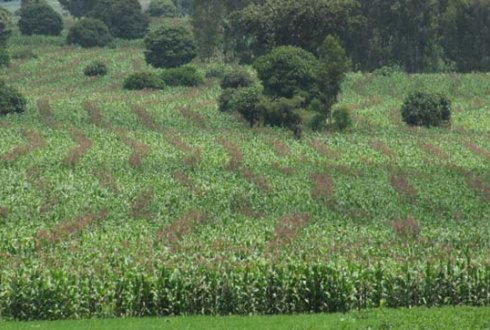At a special side event during the Integrated Seed System Development conference in Kumasi, Ghana, we discussed the initiative to develop the Access to Seeds Index with representatives of the private sector in eight African countries: Mali, Ghana, Burundi, Mozambique, Uganda, Malawi, Zambia and Ethiopia. There is definately a role to play for leading seed companies in farmer development, as was concluded. Interaction between global seed companies and local seed systems could benefit both.
The preparatory survey on activities of leading seed companies (LSC) in these countries pointed out that LSCs are active in all countries surveyed. In some cases companies are active in local seed production, but no cases of local breeding were found. Small holder farmers are reached, mainly with maize and vegetable seeds. Multiple distribution networks are used, although LSCs seems to be a preference to build their own networks. Hardly any linkages between LSC and local seed systems were identified.
Several areas of in which LSCs could contribute to the development of farmers and local sees systems were discussed, like sharing knowlegde in research (without royalties), demonstration projects, training and capacity building, improving distribution networks. Some impressions from the discussion below.
One of the participants described his experience in a partnership with Monsanto in Uganda in local seed production. In his experience much could be learnt from the expertise the corporate partner brought in, for instance on preparing the field. Outgrower farmers were enabled to produce for the region, also outside of Uganda, because the corporate partner could cover for the necessary testing and field inspections for which the local infrastructure was lacking at that time.
A participant from Mozambique made a case for local breeding. Farmers do use seeds from the global seed sector because of its quality and higher yields. But they also keep a business on local varieties and land races on the side, simply because those crops are preferred by local markets. And, in his view, should LSCs dedicate their breeding capacities to improve these varieties, that could increase yields and open bigger markets. Using farmer feedback and local communities in variety testing and breeding could lead to better quality crops that are better suited for local markets. Local varieties simply taste better or have characteristics that are better appreciated in the local cuisine.
The Mali representative wondered whether LSCs could also play a role in linking the seed system to the product value chain. When food producers, super markets or the food service sector would grow interest in local crops, other than maize, rice and grains, this could boost local economies and seed sectors. Pushing the quality of local seed systems by better inputs is welcome, but increasing a pull factor from the product value chain would really help.
The results of this side event will be used in perparing the Round Tables on the Access to Seeds Index in fall.




